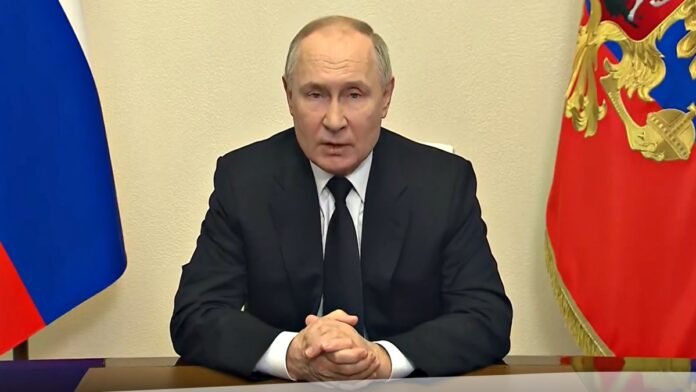
Key Points:
- Proposal Rejected: Russia has declined to accept U.S. President Donald Trump’s ceasefire plan for Ukraine, citing unresolved “root causes” of the conflict.
- Fresh Demands: Moscow insists on addressing issues like NATO expansion and territorial disputes before agreeing to a truce.
- Energy Attacks Continue: Despite a partial ceasefire, Russia and Ukraine accuse each other of targeting energy infrastructure, leaving thousands without power.
- Trump’s Warning: Trump threatens secondary tariffs on Russian oil if Moscow obstructs peace efforts.
Moscow: In a critical development, Russia has rejected U.S. President Donald Trump’s proposed ceasefire plan for Ukraine, citing its failure to address the underlying causes of the ongoing conflict. Russian Deputy Foreign Minister Sergei Ryabkov stated that while Moscow takes the proposal seriously, it cannot accept it in its current form. He emphasized the need for solutions that address key issues such as NATO expansion and territorial disputes.
Russia’s Response to Trump’s Proposal
Speaking to International Affairs, Ryabkov said, “We take the Americans’ proposed models and solutions very seriously, but we cannot accept them as is.” He criticized the proposal for ignoring Russia’s primary demands, including NATO’s involvement in Ukraine and Kyiv’s aspirations to join Western alliances. Moscow has also demanded recognition of its control over occupied territories such as Donetsk, Luhansk, Kherson, and Zaporizhzhia.
The rejection comes after recent U.S.-brokered talks in Riyadh led to a partial ceasefire agreement focusing on halting attacks on energy infrastructure and ensuring safe navigation in the Black Sea. However, both sides have since accused each other of violating these terms.
Energy Infrastructure Under Attack
The fragile ceasefire was tested again on April 1 when Russia reportedly attacked an energy facility in Kherson, leaving 45,000 residents without electricity. Ukrainian Foreign Minister Andrii Sybiha condemned the attack during a press conference, stating that it breached the U.S.-mediated agreement. Meanwhile, Russia accused Ukraine of targeting power facilities in Russian-controlled regions like Zaporizhzhia and Belgorod.
Since the invasion began in February 2022, energy infrastructure has been a focal point of attacks from both sides. These strikes have caused widespread power outages and disrupted civilian life across Ukraine.
Trump’s Frustration with Moscow
President Trump has expressed growing frustration with Russian President Vladimir Putin over delays in reaching a comprehensive peace deal. In a recent interview with NBC News, Trump warned that he might impose secondary tariffs on Russian oil exports if Moscow continues to obstruct negotiations. “If I believe Russia is to blame… I will impose secondary tariffs on oil,” Trump said, adding that these measures could range from 25% to 50%.
Trump also criticized Ukrainian President Volodymyr Zelensky for his handling of the conflict but reiterated his commitment to ending the war swiftly. The U.S. president has faced mounting pressure to deliver results as global tensions escalate due to his tariff threats.
Global Implications
The ongoing conflict and stalled negotiations have far-reaching consequences:
- Energy Crisis: Continued strikes on energy facilities risk worsening Europe’s energy supply challenges.
- Economic Sanctions: Trump’s proposed tariffs could further isolate Russia economically while impacting countries dependent on Russian oil.
- Geopolitical Shifts: With NATO expansion at the heart of the dispute, tensions between Western allies and Russia remain high.
As Moscow rejects Trump’s ceasefire proposal and issues fresh demands, the path to peace in Ukraine remains uncertain. The continued targeting of energy infrastructure by both sides further complicates efforts to stabilize the region. With Trump threatening economic repercussions and global powers watching closely, the coming weeks will be critical in determining whether diplomacy can prevail or if the conflict escalates further.







































